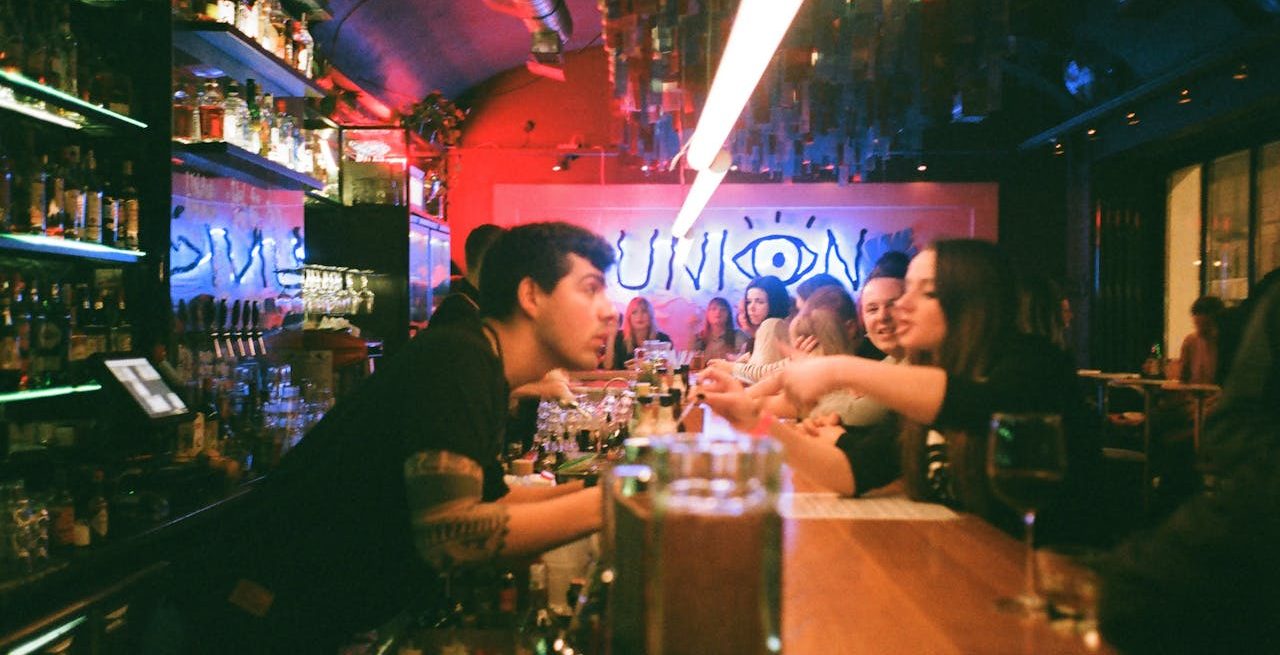When to Stop Serving Alcohol and Refuse Service
3 Min Read By Society Insurance
Restaurants and bars face unique risks and complexities. As an alcohol-serving establishment, your business can be especially vulnerable to legal challenges. Do your bartenders know when to stop serving patrons? Do they understand the signs of intoxication in individuals? April is National Alcohol Awareness Month and Society Insurance is here to address these critical questions and provide essential insights to ensure responsible alcohol service.
When Does a Bartender Have the Right to Refuse Service to a Patron?
At some point a bartender will likely have to address a belligerent or very intoxicated person. Below are several legitimate reasons to refuse service to a patron:
- Underage individuals
- Those who have over-consumed and are showing symptoms of intoxication
- Excessively rowdy or unruly customers
- An individual is harassing staff or other customers
- The establishment is at capacity
Right to Refuse Service – Steps
First, a server or bartender should take steps to slow down service and make sure a manager is aware of the situation at hand. The manager should keep a close eye on the situation to decide the appropriate next steps. Consider offering food and water. Try to slow down service as much as possible by making yourself less available to the patron. Regardless of the situation, it’s crucial to alert a manager if you suspect someone has been overserved. Allowing an intoxicated individual to drive should never be an option, as impaired driving can result in severe consequences.
What to Say When Refusing Service
Whenever possible, avoid cutting off a patron in front of others. Instead, the manager should discreetly ask the individual to step aside or find a quieter area to discuss the situation (always ensuring there’s another staff member present for safety). Approach the conversation calmly, stating the facts without being accusatory or aggressive. For example, say, “It’s time to call it a night. We won’t be serving you any further. Do you have a ride, or would you like us to arrange transportation?” Instruct your bartenders not to continue serving the individual and avoid negotiating the decision.
Potential Signs of an Intoxicated Person
- Loud or agitated speech
- Ordering drinks rapidly
- Slurred speech
- Stumbling
- Spilling drinks
- Appearing drowsy
- Aggressive behavior
- Bloodshot eyes
Under What Conditions Can a Business Not Refuse Service?
Enforced by the Civil Rights Act of 1964, a business cannot refuse service based on:
- Race or color
- National origin or citizenship status
- Religion or creed
- Sex or Sexual Orientation
- Age
- Disability, pregnancy, or genetic information
- Veteran status
Always review your state laws in addition to this list. Some states offer additional protections that your business must be aware of and adhere to. Your right to refuse service applies to certain criteria.
Consequences of Over-Serving Customers
Bartenders who serve intoxicated patrons may be at risk to face legal and civil charges. Numerous states have enacted laws that enable prosecution and civil actions against establishments serving alcohol to visibly intoxicated individuals or minors.
Additionally, restaurants and bars can also be vulnerable to litigation. Dram Shop liability laws regulate establishments that sell alcohol to intoxicated individuals or minors, who subsequently cause harm or fatalities to themselves or others. Most states have some form of dram shop law in place.
Importance of Regular Training for Employees
Protect your business, employees, and customers by incorporating ongoing and comprehensive service training, especially on handling intoxicated patrons. Society Insurance has a partnership in place that provides discounts for Society policyholders to use any service offered by ServSafe – this includes alcohol service training.
View our risk management library for more safety resources for your business. Our bar and restaurant insurance programs are tailored to the unique needs of your business and your local Society agent will help you to determine the insurance coverage necessary to protect your establishment.
This information is provided as a convenience for informational purposes only. This information does not constitute legal or professional advice and does not establish compliance with any law, rule or regulation.


